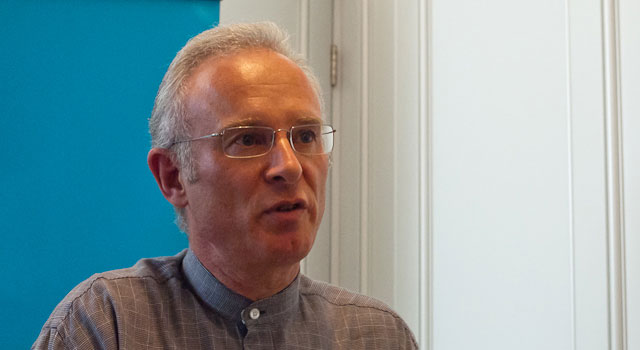
Telkom’s plan to cut thousands of jobs could be what the telecommunications company needs to compete more effectively in future, said Arthur Goldstuck, MD of local technology research company World Wide Worx.
On Tuesday evening, Telkom confirmed that the company expects “a net headcount reduction of 4 400 people through voluntary severance packages or voluntary early retirement packages”.
Telkom spokesman Jacqui O’Sullivan said the company also expects “to exit around 3 400 staff, but importantly, Telkom will seek to retain these skills, through outsourcing to other companies or through enterprise development”.
The shedding of jobs comes as Telkom embarks on the second stage of its turnaround process, which to date has included outsourcing its call centres and shutting down some of its Direct stores.
The announcement of further job shedding at the company comes after Telkom reported that its group net revenue increased by 3,1% to R26bn while its earnings before interest, taxation, depreciation and amortisation rose by 15,1% to R9bn.
But a key worrying figure for Telkom is the performance of its core fixed-line business. While Telkom surpassed a million ADSL lines, its total number of fixed access lines fell by 4,9% during the period, from 3,6m to 3,4m.
Telkom’s fixed-line voice usage revenue also continued its downward trend, decreasing by 13,5% to R6,9bn (March 2014: R7,9bn).
“There’s no question that Telkom needs some strong medicine,” Goldstuck said. “Certain segments of the business are certainly struggling and the fixed-line area in particular is in deep trouble.
“And this is Telkom I guess finally acknowledging the kind of trouble it’s in — although it obviously doesn’t cast it in those terms. So, radical measures are needed and there’s probably no such thing as too soon, or too quick,” said Goldstuck.
Goldstuck added that a big question is how unions will respond.
On Tuesday, trade union Solidarity said it expects service delivery at Telkom to worsen “as it will actually be the skilled employees that will be deterred by this major uncertainty”.
But Goldstuck also said that the job cuts can either hurt or boost Telkom.
“The only basis on which one can argue against these cuts really is whether it’s going to decrease Telkom’s efficiency and, if that’s the case, then cuts for their own sake are a mistake,” Goldstuck said.
“But if it’s to improve efficiency and enhance Telkom’s performance, that’s good for the economy,” Goldstuck said.
He explained that a better performing Telkom that earns more profits would then in turn generate greater tax revenue for the state.
“That puts more money in the state’s coffers as well enabling it to create more jobs,” said Goldstuck.
Telkom is listed on the JSE. But government has a 39,8% stake in the company, while the Public Investment Corporation has recently upped its stake in Telkom to 13,2% from 10,6%.
A R2,6bn merger deal between Telkom and Business Connexion (BCX) could also boost the company in the light of future competition, Goldstuck said.
Last month, the Competition Commission announced that it recommended to the Competition Tribunal that the merger be approved with conditions.
Concurrently, Vodacom is awaiting regulators’ feedback on its bid to buy fixed-line provider Neotel for R7bn.
“If [the Telkom-BCX merger] is successfully integrated, it’s actually their best shot at competing aggressively in future if you have a Telkom-BCX combination which can take on a Vodacom-Neotel combination,” said Goldstuck.
“That’s certainly part of Telkom’s thinking.”
Meanwhile, further information is yet to emerge on how quickly Telkom is set to embark on its next round of job cuts.
However, the company is expecting its turnaround process to take a number of years.
“Telkom is now in the second year of its multi-year turnaround strategy. Initial cost savings, major management restructuring and efficiency actions have delivered important improvements. However, these next restructuring actions, which will effectively reshape Telkom’s operating model for the future, are critical to ensure the long-term commercial sustainability of our business.
“We remain committed to collaborating with organised labour in the best interest of Telkom and its people,” Telkom’s O’Sullivan said. — Fin24




